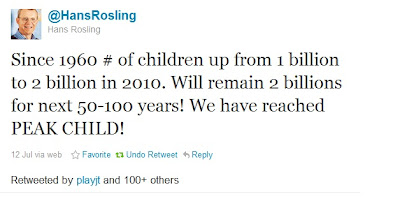The recent riots in London had all sorts of people claiming the world had gone Mad Max and it was time to shut down facebook and make all teenagers join the army. There is a great summary of the moral panic in this article "Civil disorder and looting hits Britain, We have been here before". I think its interesting how the rioting that probably wont even be visible in the end of the year crime statistics made everyone freak out so much.
For all the talk of moral decay is the world in general a worse place than it used to be? War along with the other horsemen is a pretty good definition of how bad things are. Unless Bob Geldof finally gets that concert to end death set up. Even pestilence would seem to be a big ask to fix. What is the trend for war deaths recently?
Many people have predicted a century of appalling death tolls from war. Robert McNamara the ex US defense secretary and self confessed war criminal (at 3:10 ) for example.
Blight and McNamara project the level of warfare forward into the twenty- first century based on population growth, and suggest a “speculative” but “conservative” estimate of “at least 300 million” fatalities from war in the twenty-first century, of which perhaps 75 million would be military
So how have we done in the last decade on the predicted 3 million deaths a year?
So far they haven't even been close. In fact, the last decade has seen fewer war deaths than any decade in the past 100 years, based on data compiled by researchers Bethany Lacina and Nils Petter Gleditsch of the Peace Research Institute Oslo. Worldwide, deaths caused directly by war-related violence in the new century have averaged about 55,000 per year, just over half of what they were in the 1990s (100,000 a year), a third of what they were during the Cold War (180,000 a year from 1950 to 1989), and a hundredth of what they were in World War II.So there has been under 2% of the expected war deaths this decade.

The Quaker economist describes the decline with "Just in the last fifty years, the progress towards peace has been startling. If this trend continues — and I am cautiously optimistic that it will — then as pressure from civil society increases and international institutions of conflict resolution mature, warfare as a regular practice may cease sometime late this century."
While talking about sending the four apocalyptic horsemen to their dotage the decline of Famine is also impressive
On the day that a famine is declared in Africa -- thanks as much to Somalia's political dysfunctionality as to a severe drought -- comes news that the world drought severity index has been falling for three decades. You can check for yourself by going here and clicking on "make time series":

There are some fairly serious disclaimers on this famine decline. The first is that agricultural productivity growth is declining at the moment
 combine this with a possible loss of farm productivity when global warming kicks in and there could be problems.
combine this with a possible loss of farm productivity when global warming kicks in and there could be problems.
While on the subject of how things are not good but significantly better than they used to be the last decade was the best one in human history.
We estimate that between 2005 and 2010, nearly half a billion people escaped extreme hardship, as the total number of the world's poor fell to 878 million people.
Nearly everything is getting better. Including life expectancy which you could take as evidence that even death is not what he was. Oddly all three of these sources give different numbers on 'major armed conflicts' but all agree the number is declining.

If two of the biggest problems mankind has faced for all of history are on the decline so rapidly they could be almost unknown within our life times I would say that is good news. And probably more important evidence of how we are progressing than a few rioters stealing runners.





